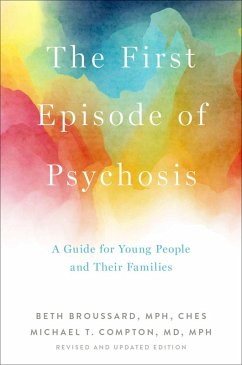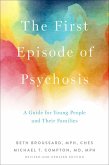A practical and comprehensive resource for loved ones and young adults experiencing an episode of psychosis for the first time. Psychosis often first occurs in late adolescence or early adulthood - an exciting but often tumultuous time of role transitions and challenging new opportunities such as college and employment. An episode of psychosis can be frightening for those undergoing it, and for their loved ones, and navigating through evaluation, treatment, and recovery can be a stressful and isolating experience. The fully updated and revised edition of
The First Episode of Psychosis is aimed at young people and their families experiencing the frightening and confusing initial episode of psychosis. The book covers a range of topics essential for those faced with the challenges posed by psychosis, including early warning signs, symptoms, types of disorders such as schizophrenia and schizophreniform disorder, evaluation, treatment, and healthy lifestyle choices. This new edition offers expanded coverage of specialized early intervention services, going back to school and work, and the latest psychosocial treatments and medicines. Worksheets help readers to track and better understand their own experiences, and facilitate open communication with care providers, while an extensive glossary clarifies the dizzying array of terms used by medical professionals. Optimistic, practical, and recovery-oriented,
The First Episode of Psychosis will help young people and their families to take an active, informed role in their care as they take steps towards recovery and achieving their goals.
Dieser Download kann aus rechtlichen Gründen nur mit Rechnungsadresse in A, B, BG, CY, CZ, D, DK, EW, E, FIN, F, GR, HR, H, IRL, I, LT, L, LR, M, NL, PL, P, R, S, SLO, SK ausgeliefert werden.









